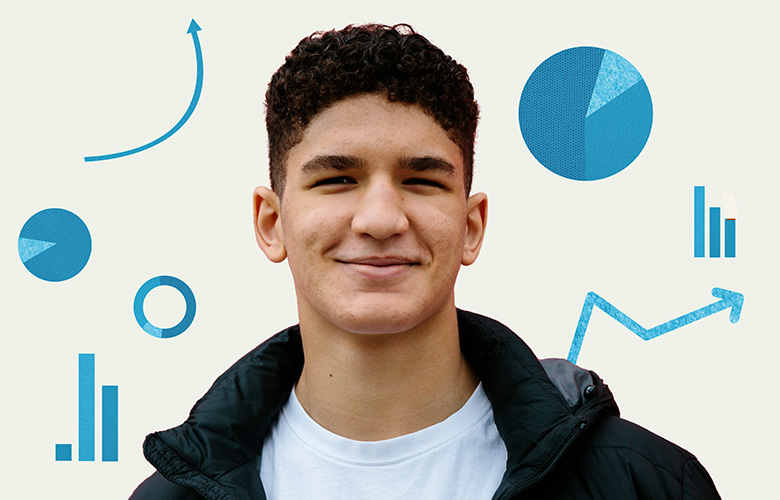Jo Louie and Jenn Stiles talk about the importance of data skills for building an informed citizenry.

The world today runs on data and information. Data literacy is essential to success in hundreds of jobs and is key to making wise decisions. Yet far too few students have the opportunity to gain data literacy, achieve more advanced levels of data fluency, and explore data science careers. As a result, the United States faces a shortage of workers with the analytical skills needed to use big data to inform decision-making. While the need for data scientists is projected to grow rapidly, our country’s education and workforce development systems are not keeping pace.
EDC is a leader in fostering data literacy across the lifespan, expanding access to data science careers, and supporting the use of data to guide informed decision-making. We transform data science education—with a focus on real-world data and work-based learning—to help youth and adults succeed in a data-intensive world. Our partners include leaders from industry, pre-K–16 education, career and technical education, community colleges, and four-year colleges.
Nationwide, EDC convenes innovators and thought leaders to chart a course to meet the needs of tomorrow’s learners and workforce. Our research and evaluations advance knowledge of what works in data education. Our learning experiences build key skills and knowledge—data visualization, statistical analytics, computational thinking, artificial intelligence literacy—to ensure a future-ready workforce.
Featured

In the new guide K–8 STEM Career Competencies, published by EDC’s STEM Learning and Research Center (STELAR), my co-authors and I share easy and effective ways to help students explore and acquire the skills they will need to thrive in 21st-century workplaces.

Exploring the skills that students need to succeed in the field.

A diverse data science workforce is critical to America—now and in the future.

Data literacy is a critical skill for the future. Why are we not prioritizing it in K–12?

The workplace as we know it is changing rapidly. How can schools adapt?

Jo Louie and Jenn Stiles talk about the importance of data skills for building an informed citizenry.

In the new guide K–8 STEM Career Competencies, published by EDC’s STEM Learning and Research Center (STELAR), my co-authors and I share easy and effective ways to help students explore and acquire the skills they will need to thrive in 21st-century workplaces.

Exploring the skills that students need to succeed in the field.

A diverse data science workforce is critical to America—now and in the future.

Data literacy is a critical skill for the future. Why are we not prioritizing it in K–12?

The workplace as we know it is changing rapidly. How can schools adapt?